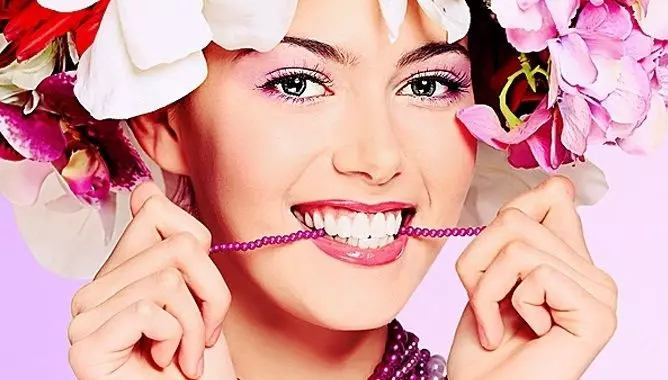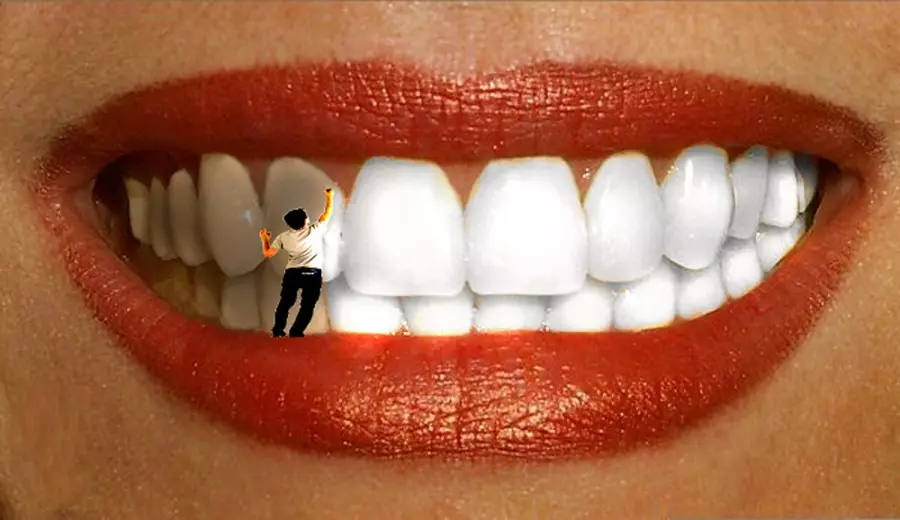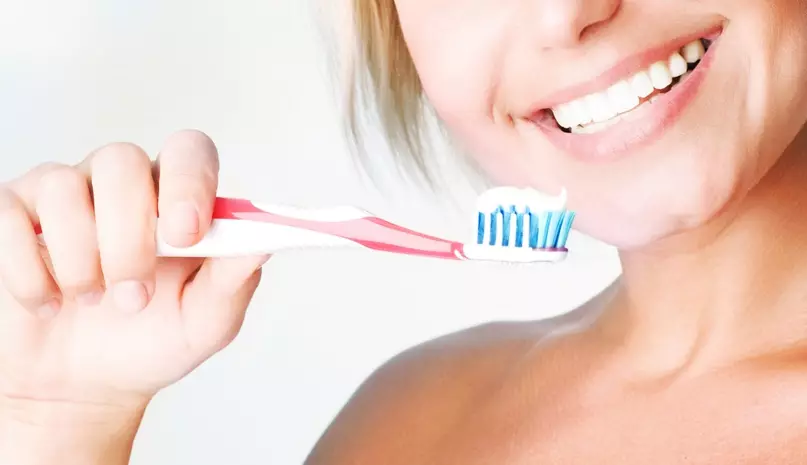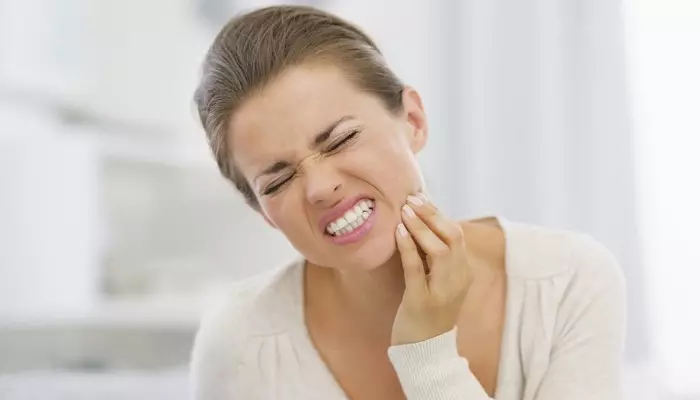
No one is secret that many people are afraid to treat their teeth. For example, 12 percent of adults in the United States argue that when they need to visit the dentist, they postpone it until the latter. And some people are afraid of "dental" so much as they prefer to bypass him.
Considering such a large stress and concern associated with dentists and health of the teeth, it is not surprising that a lot of myths appeared that explaining problems with teeth. But the truth lies in the fact that false information about the health of the teeth can be harmful. So, we give the five most common myths associated with your teeth.1 Whitening Weakens Teeth

Of course, everyone would like their teeth to be pearl-white, but sometimes it is impossible to achieve with the help of regular cleaning and use of dental thread. Fortunately, there are many bleaching products, from gels to pastes and strips that will help "fool" mother nature and make teeth better.
But some people worry about the use of bleaching agents can be harmful to teeth or weaken them. There is a reason for this fear ... in fact, no. Products for bleaching are usually harmless if used in accordance with the instructions. This is because teeth whitening affects only their color, and not on their health or strength. Whitening works by removing the pigmentation of some teeth, and if you bleach them too much (i.e., remove too much natural pigmentation), then the teeth may begin to look transparent. Some people can take this translucency for weakening enamel or damage to teeth, but it is not so - it is just a change in color.
The side effects of too strong whitening include temporary sensitivity of the teeth and irritation of the gums, but there are no objective reasons to fear that the use of bleaching means will weaken teeth
2 Cleaning is harmful to bleeding gums
At first glance, this myth may make sense - if someone has a bleeding gum, it seems logical that you need to leave them alone until they heal. But in the case of the gums, the opposite is. When the gums bleed, it is a sign that the dental flare and food particles accumulate along the gum line, irritating and praising them. Therefore, to stop bleeding requires cleaning to remove dirt. The gums can also be bleeded when using tootted thread for the first time or after a long break, since the gums are not yet accustomed to the like.

The secret is that it is necessary to clean the teeth and use the thread regularly and neatly. Dentists recommend holding a toothbrush so that the bristles are at an angle of 45 degrees to the teeth, and the bristles were directed to the gums. This is the most efficient way to remove a dental plaque with a toothbrush. When using a dental thread, it is not necessary to stretch it between your teeth, and carefully move the thread back and forth, following the bending of the tooth, until it slipballs between the teeth. This may take some time, but ultimately bleeding and soreness will disappear. If this does not happen, it may be a sign of a more serious problem, and you should contact your dentist
3 Bad breathing means using a bad brush
In fact, silent breathing can be caused by several factors, only one of which is poor oral hygiene. The main culprit is the products that the man eats - the stomach, full of garlic and onions guaranteed to give the breath of an unpleasant smell, regardless of how many times brushing the teeth and use the dental thread. What about such diseases like pneumonia? No one wants to kiss the patient and the matter is not even in concern to become infected - some diseases can also cause silent breathing.If you follow the recommendations of the dentist regarding cleaning at least two times a day and visit your dentist at least two times a year for a regular inspection, you can be sure that silent breathing is not caused by the problem of oral hygiene. But if such a problem is, it is worth consulting with a dentist to identify the cause.
4 The more sugar eat, the worse for your teeth
To whom in childhood did not say that candy, sugar, and any sweets are harmful to the health of the teeth and can lead to their complete destruction. But does anyone know that the amount of sugar that uses a person is not a decisive factor in the destruction of the teeth.
Bacteria in the mouth feeds carbohydrates, such as sugar, and produce an acid that corps the enamel of the teeth. The longer sugar is in the mouth, the longer bacteria can eat and produce acid, and the longer acid can affect enamel. In other words, we are not talking about the number of sweetly eaten, but how long it is in contact with the teeth.
This means that if you eat three candies and clean your teeth after that, it will be less harmful to the health of the teeth than the use of one candy without cleaning. Slow-soluble candies, such as lollipops, are also poor idea, as they lead to the adhesion of sugar particles to the teeth.
5 Paintal, laid directly to the tooth, will make pain faster
This is an old home product, but it is fundamentally incorrect - you should never apply a tablet directly on the sick tooth or next to it. In the end, if someone had a headache, he obviously would not put aspirin on his forehead.

The only safe and effective way to take a painting tablet is to swallow it. When you swallow medicine, it is absorbed into the body through the digestive tract. Then it enters the bloodstream and distributed throughout the body. The same aspirin works, stopping the production of prostaglandins, molecules that send pains from the damaged part of the body into the brain. When aspirin reaches a sick tooth, it inhibits the production of prostaglandin there, reducing sense pain. Therefore, although it may seem tempting to bypass the process of digestion, putting aspirin directly to the tooth, this simply will not work.
There is another reason to stop using this inefficient method. Placing medication directly on the sore tooth or gum can lead to an acid chemical burn gum and lips.
